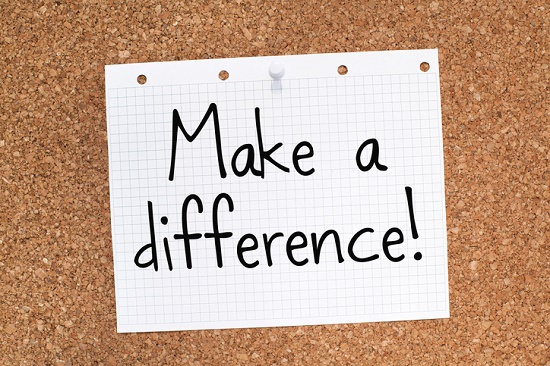
If you presently use hearing aids, you’ve already beat the odds.
In the US, approximately 48 million people have hearing loss, of which 28.8 million could benefit from using hearing aids.
However, of those age 70 and older, only 30 percent of those who could benefit from hearing aids actually use them. For those age 20 to 69, it’s only 16 percent.
That’s literally millions of Americans that are missing out on the benefits of healthier hearing—benefits you understand first-hand if you use hearing aids yourself or know someone who does.
So what can you do to enhance awareness about the positive effects of hearing aids and the enhancements to the quality of life they produce?
Below are 10 ways to become a hearing health advocate.
1. Talk about hearing loss on social media
Social media is a simple and efficient way to spread the message about the benefits of better hearing. Tell people about how hearing aids work, and how they’ve personally improved your life or the life of someone you know.
While people are typically skeptical of advertising, they’ll almost always be receptive to personal stories.
2. Volunteer to help those in need
Participate in a local event like the Hearing Loss Association of America’s Walk4Hearing event, or plan your own to boost awareness or funds for hearing loss.
Get in touch with your local hearing loss chapter and find ways you can assist in the community. Check out the Hearing Loss Association of America to find a local chapter.
3. Donate your old hearing aids
If you’re ready to upgrade your hearing aids to a newer model, consider donating your old hearing aids to a local organization or hearing clinic.
Your donated hearing aids can be reconditioned and supplied to those who couldn’t otherwise afford them.
4. Contribute to hearing health organizations
Consider donating to an organization that supports the deaf and hard-of-hearing community, such as the Hearing Health Foundation, Hearing Charities of America, or a local group.
These establishments use the contributions to fund research, to deliver education and support, and to offer financial assistance to those who can’t afford hearing aids or cochlear implants.
5. Start a petition
Most states do not require health insurance plans to help cover the expense of hearing aids. Start a petition to introduce to your elected representatives, asking them to recognize hearing health as a crucial component of total health.
6. Help someone overcome hearing loss
Plenty of people believe the misconception that hearing aids don’t work, or they may even be denying they have a problem in the first place.
Help people to accept their hearing loss and understand that the technical advancements in hearing aids can help them recover their hearing. Help guide them through the process of choosing a provider, getting their hearing tested, and adjusting to their hearing aids.
7. Advocate for the community
Hearing loop systems supply sound straight from the sound source to the individual’s hearing aids. These can be found in movie theaters, churches, universities, and auditoriums.
Advocate for the addition of hearing loop systems in the most popular community locations.
8. Wear hearing protection
One of the best ways to advocate for hearing health is by becoming a hearing health role model. That means safeguarding your hearing at loud venues, like at live shows or sporting events, with custom hearing protection.
9. Have your hearing evaluated
If you don’t already use hearing aids, display your dedication to hearing health by getting your hearing tested. Share the process on social media and suggests that other people do the same.
10. Wear your hearing aids with pride
Last, you can do your part to end the stigma of hearing loss by wearing your hearing aids with pride. Hearing loss is common, just like vision loss, and wearing hearing aids should be as natural and accepted as wearing a pair of prescription glasses.